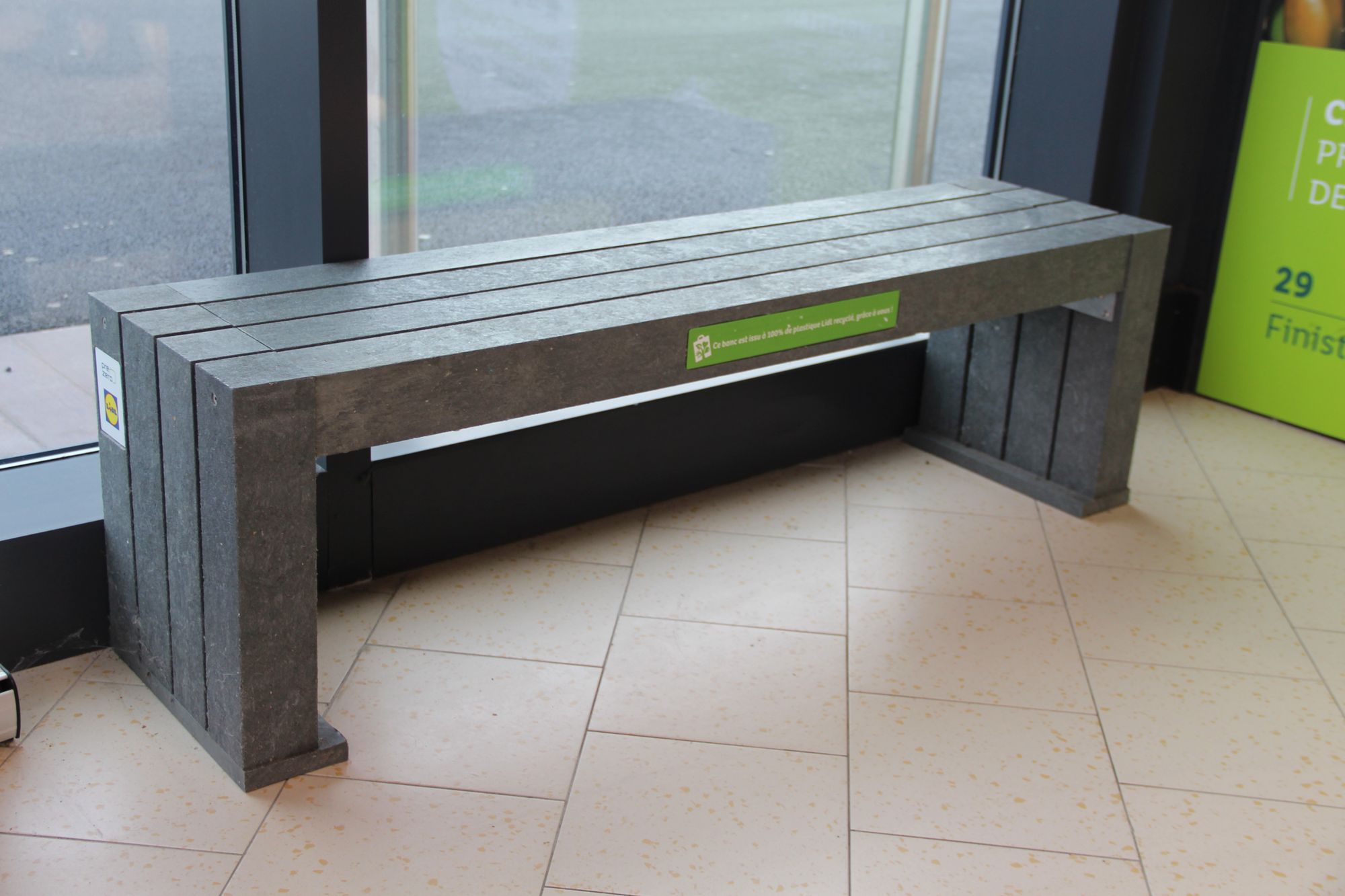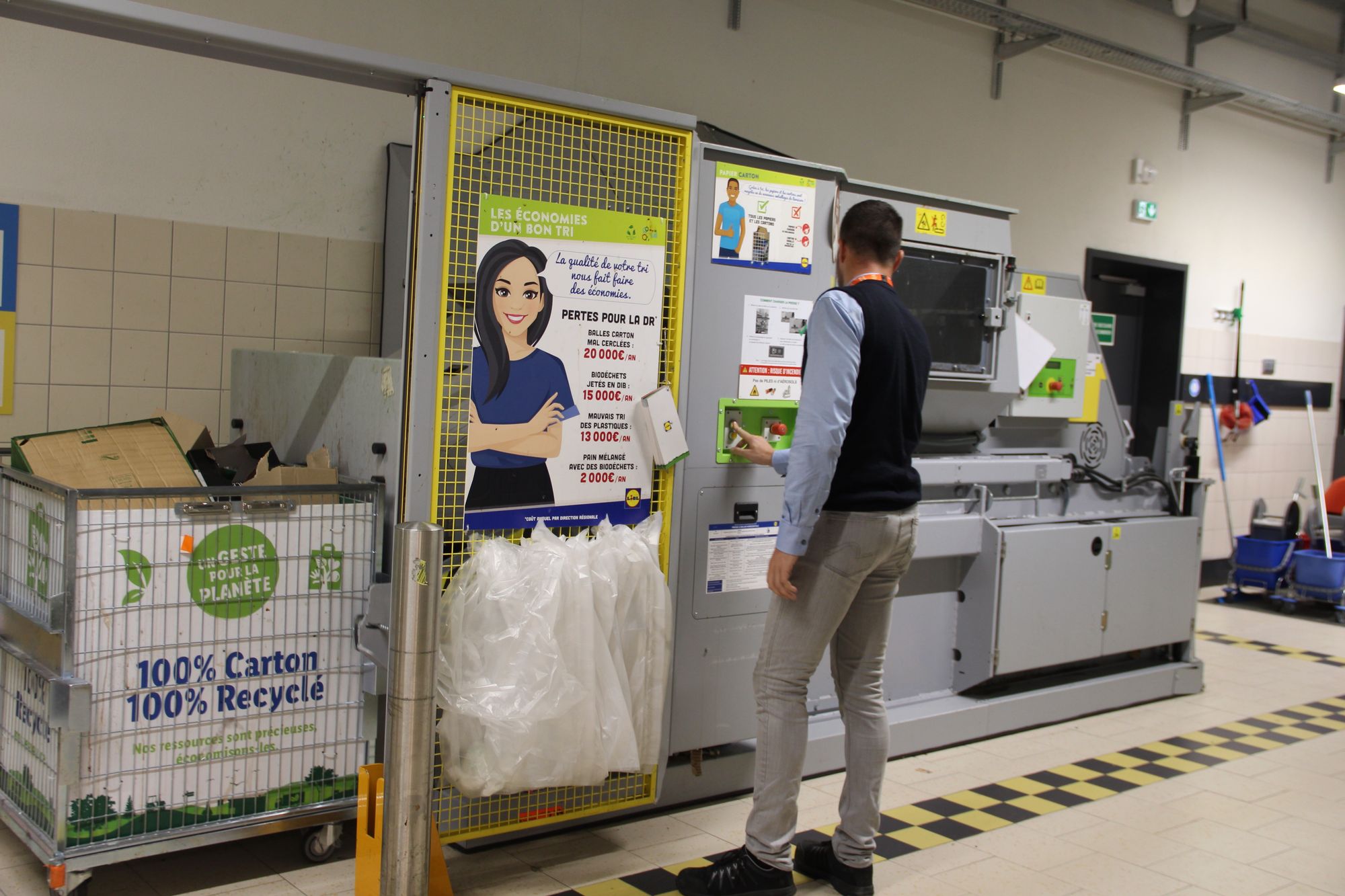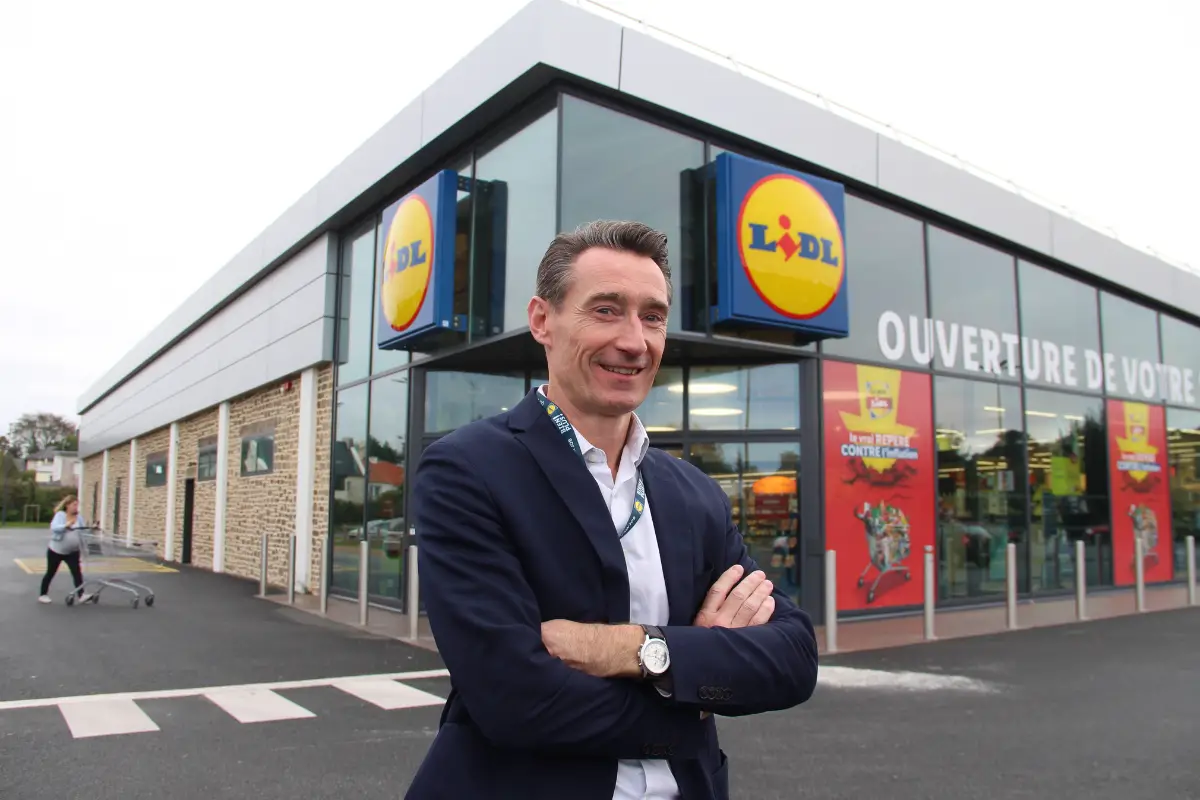“The best waste is the one that is not created”: this is the philosophy promoted every day by the new Lidl stores since 2017. The German brand, which has 31 stores in Brittany and 19 in Finistère, has created a very innovative sorting system. Illustration in store Lidl in Guipavaswhich provides its own sorting management and reduces rotations of its trucks.
In a young shop Lidl in Guipavaswhose area of 1420 m² was built in December 2021, 25 employees report daily ecological methodology. “When they join the company, they immediately spend an integration day with the regional management in Guingamp,” explains Kévin Droguet, Business Director. We’re learning how to use pallet trucks, all the technical processes in the shop, but we’re also going to be dealing with environmentally responsible topics that we’re going to incorporate into our working methods.” assisted their recycling.
“We have several actions that allow good management of our waste,” explains Romuald Gourichon, the company’s real estate manager in Brittany since 2015, who, in addition to taking care of the development, technique and modernization of The brand, represents the company’s virtuous approaches.
“There is our ‘reverse logistics’ that allows us to do thisoptimize and reduce mixed waste and subsequently maximize their use » ; in this case, we separate different types of waste: plastics (transparent, colored or mixed), all cardboard, which is immediately compressed by employees in a press.
📩 OUR NEWS
CSR, Com’ Locale, Podcast…: receive our newsletters every week
“Plastic Reset”
“All waste is collected from supermarkets and centralized at regional collection points. So here everything is sent to the regional management in Guingamp, which centralizes it all,” explains Romuald Gourichon. The waste is then sent to specialist service providers for further recycling. Cardboard is sourced from French paper mills to make new boxes – boxes that can even be returned directly to mass distribution. The same applies to pallets and crates that will be processed by companies in the wood industry.
Lidl’s next ecological innovation is the “plastic reset”. “It’s about making 100% of our packaging as recyclable as possible; to use 20% less plastic in packaging, but also to use an average of 20% recycled plastic in our own packaging,” explains Romuald Gourichon.
THE bio waste, will go to methanation plants for internal revaluation. “We also aim to reduce our emissions, reduce our delivery routes and our vans that run on biogas as much as possible.” The result is an “impressive circle that does not occur so systematically in other large distribution companies”.

Sorting management created in 2017
The sorting management system was created in 2017 in Lidl. “This allowed us to no longer have waste bins in our stores, to have centralized management, real autonomy in waste management and no longer had to contact external service providers,” explains Romuald Gourichon.
The benefits for saving CO2 are significant: the carts do not run empty, require fewer revolutions and have 98% filling. Between 2019 and 2024, the CO² saving reached 9%.
In addition to its green autonomy, “zero waste” operation. of the store is reflected in the service dedicated to the customer. There are sorting bins at the entrance to the store, allowing you to avoid a trip to your local recycling centre, which does not have supermarket opening hours. “There are collection bins for plastic waste, household waste, cardboard, paper, batteries and light bulbs,” says Kévin Droguet. A little something extra, which is not negligible, as Chloé, a young mother who has been visiting the Guipavas store for six months, found out. “I admit that for the batteries and light bulbs that accumulate at home and we don’t know what to do with them, it’s a pretty nice initiative! “.

A gesture for Restos du Coeur
Like many stores and brands these days, Lidl has evidently not forgotten to set up a section for products nearing their use-by date. “We do a 50% discount on products, but every evening there is also a new sorting in the shops, which allows you to place 5 kg crates filled with fruit and vegetables or bakery products the next morning for just 1 euro. The product remains, of course, edible, but less fresh and therefore of reduced quality,” adds Kévin Droguet.
This small gesture for €1, which is not insignificant, has an impact at national level: for every sale, 50 cents are donated to Restos du Cœur. Since 2016, this initiative has made it possible to revalue more than 100,000 tons of goods and donate more than ten million euros to the association.
Comments collected by Nora Moreau.

